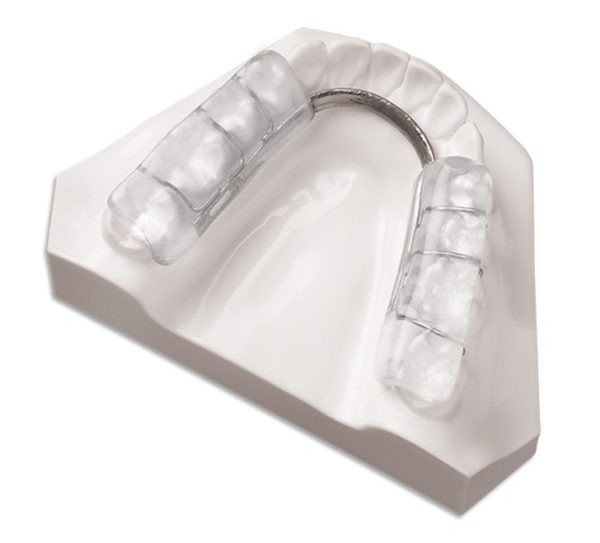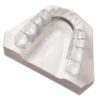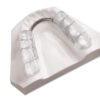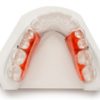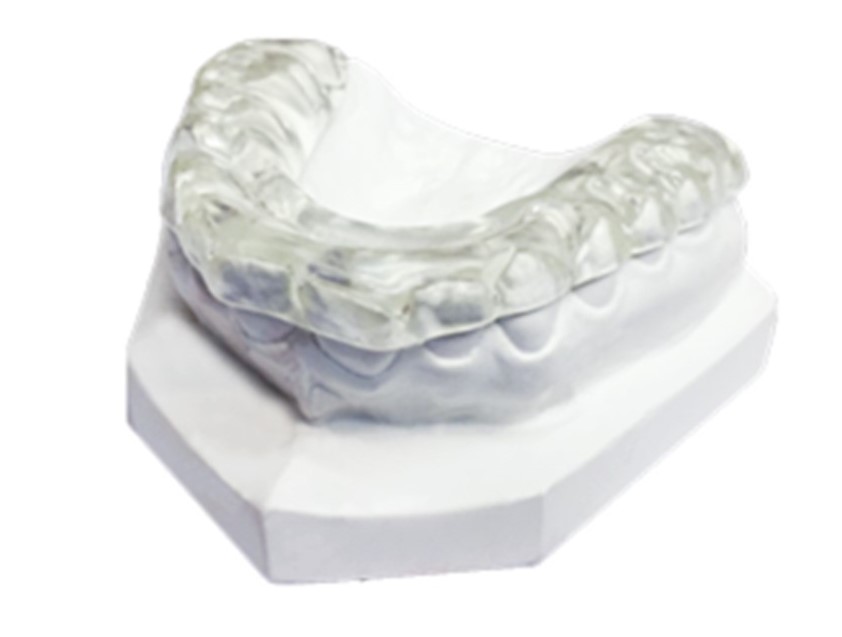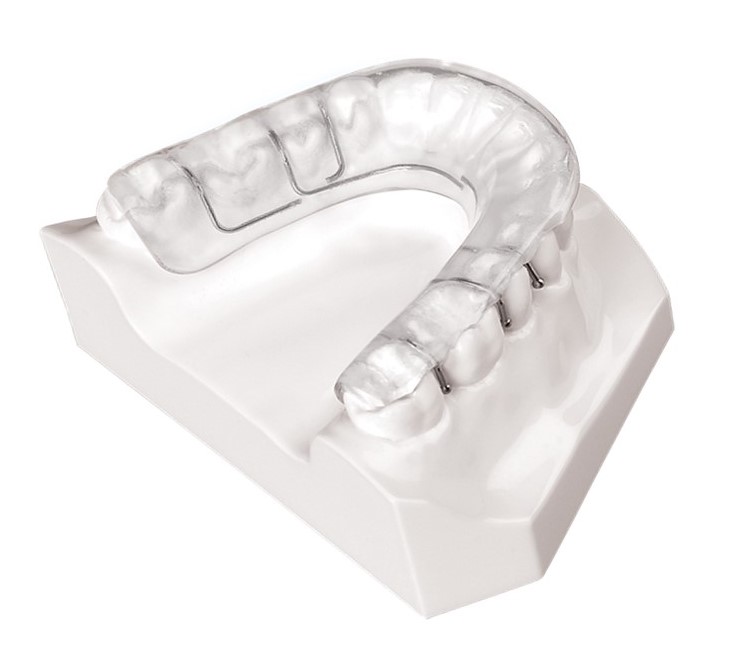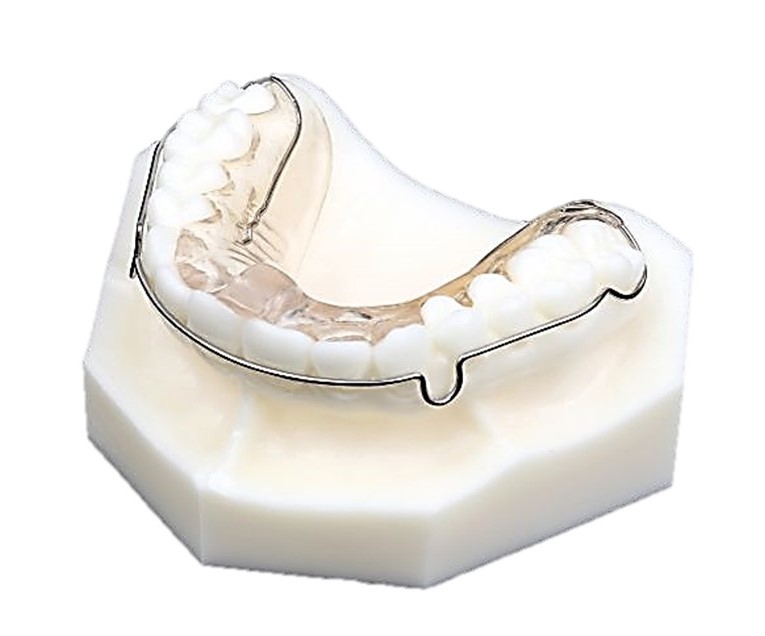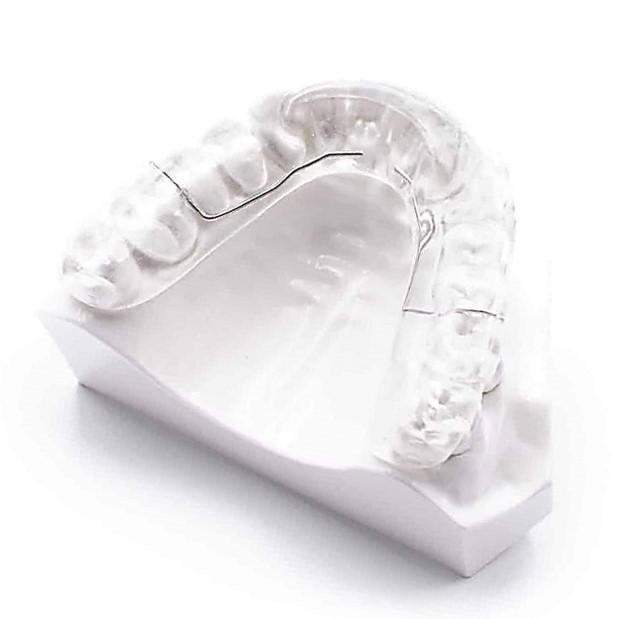Description
Treatment & Care
A traditional lower diagnostic splint, commonly used to establish proper vertical dimension with slight to moderate anterior repositioning. The amount of repositioning dictates how heavily indexed the posterior bite pads become. By placing the condyle in its fossa, the Gelb splint or mora design repositions the mandible, resulting in neuromuscular equilibrium. This splint can further close the bite in orthodontic treatment. The splint is fitted with retention clasps. Its two acrylic pads are linked together by a very stiff lingual bar that extends along the gingival and lingual surfaces of anterior teeth. These pads cover the mandible posterior teeth. The maxillary posterior teeth rest on the area where the splint is slightly indexed at the upper lingual cuspid. Moreover, the splint enables the mandible to reposition itself slightly forward. Patients should be seen often during this stage of treatment. A 30 days interval is normal to check the range of motion. Patients should clean daily with toothpaste to prevent the buildup of plaque and odor. Avoid Efferdent and other effervescent solutions, as it may erode components on the appliance. It is
recommended to use products like Dent Soak or Retainer Splash.
Materials
- Wire: American Orthodontic Chromium Cobalt
Attachment & Band options:
- 1 expansion screw that will expand 3 directions
- Acrylic palate
- Clasps for retention
- 3×3 labial bow


